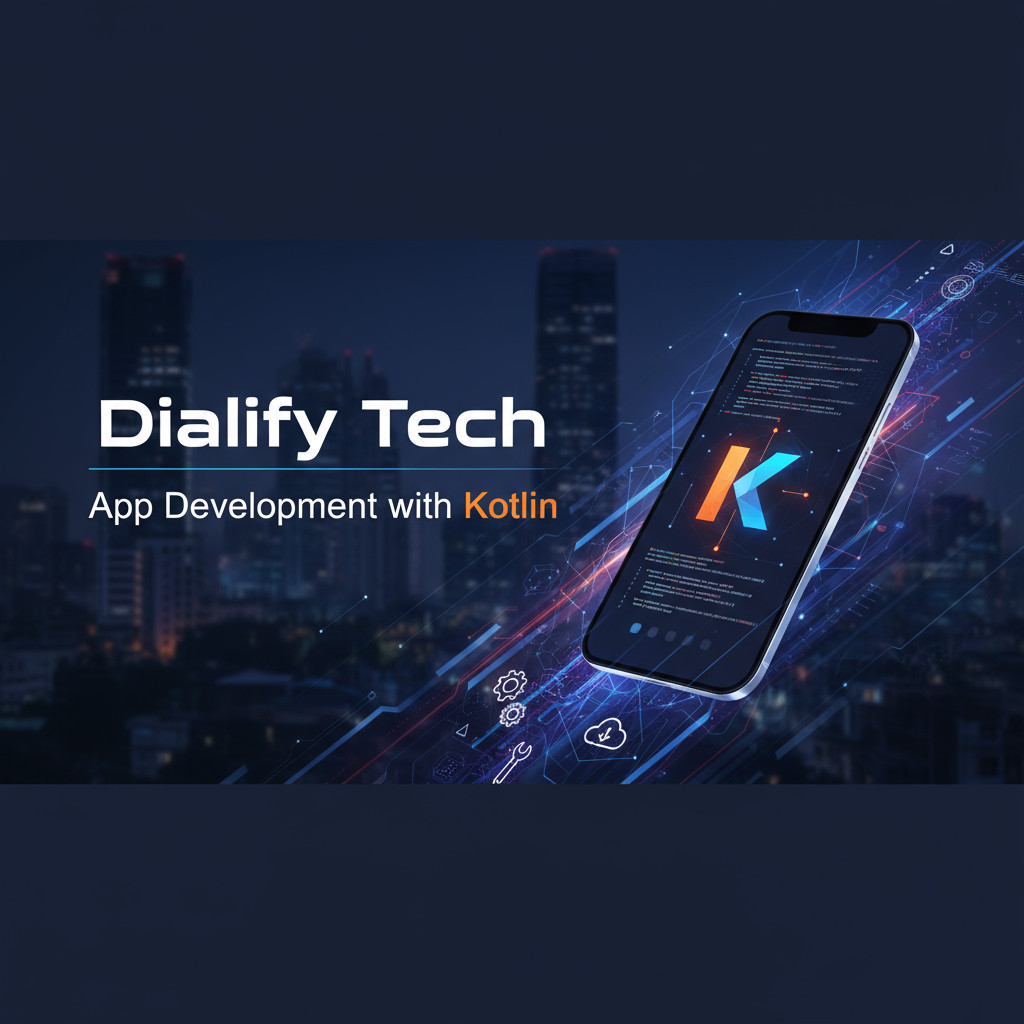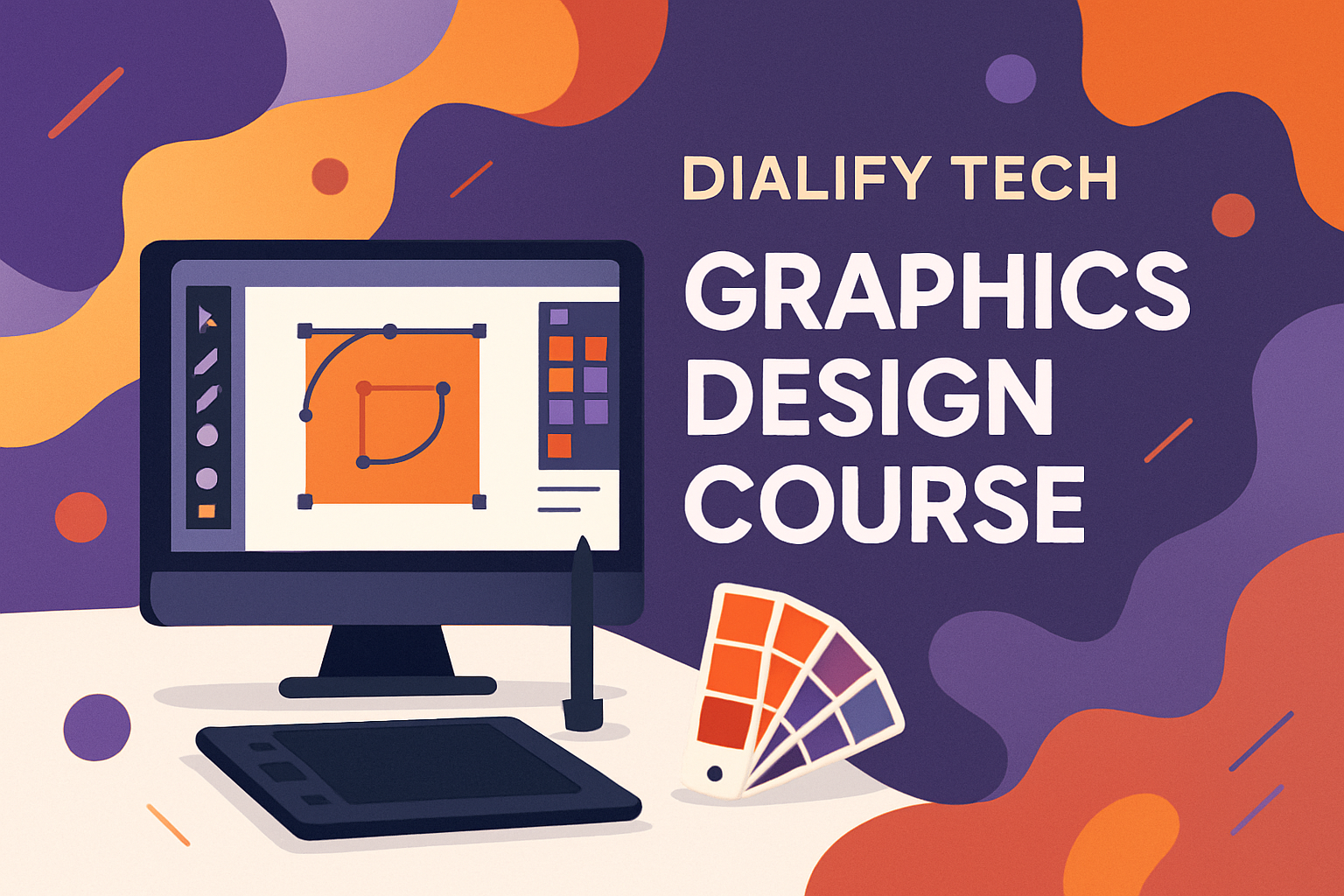
কোটলিনের সাথে অ্যাপ ডেভেলপমেন্ট
Dialify Tech – App Development with Kotlin
Location: Mirpur, Dhaka
Course Description
This intensive program provides a comprehensive journey into modern Android development with Kotlin, Google’s preferred language for Android apps.
Designed for aspiring mobile developers, the course takes learners from Kotlin fundamentals to advanced Android development with Jetpack Compose, data storage, API integration, and deployment.
The curriculum emphasizes hands-on projects and a capstone app that ensures students graduate with real-world experience and a portfolio-ready application.
Target Audience
-
Aspiring Android developers
-
Developers transitioning from Java or other languages
-
Mobile developers enhancing Kotlin & Jetpack Compose skills
-
Students and professionals seeking native Android development expertise
Prerequisites
-
Basic understanding of programming concepts
-
No prior Kotlin or Android experience required
Learning Objectives
By the end of this course, participants will be able to:
-
Master Kotlin fundamentals for Android development
-
Use Android Studio efficiently
-
Design modern UIs with Jetpack Compose
-
Manage app lifecycle, activities, fragments, and services
-
Implement Room database and local storage solutions
-
Integrate and consume RESTful APIs with Retrofit/OkHttp
-
Use Android Architecture Components (ViewModel, LiveData/StateFlow, Navigation)
-
Apply coroutines for async programming
-
Debug, test, and optimize Android apps
-
Publish applications to the Google Play Store
Course Modules & Curriculum
Module 1: Kotlin & Android Fundamentals (10 hrs)
-
Why Kotlin? Key features (null safety, conciseness, Java interoperability)
-
Kotlin basics: variables, control flow, functions, lambdas
-
OOP in Kotlin: classes, inheritance, interfaces, data classes
-
Collections & operations
-
Android basics: ecosystem, architecture, Android Studio tour
-
Project structure (Manifest, Gradle, resources)
✅ Outcome: Write Kotlin code, navigate Android Studio, build & run a simple app
Module 2: UI Development with Jetpack Compose (15 hrs)
-
Declarative UI paradigm
-
Basic Composables: Text, Button, Image, Card, TextField
-
Layouts: Row, Column, Box, ConstraintLayout, Scaffold
-
State management: remember, mutableStateOf, ViewModel integration
-
Lists & Grids: LazyColumn, LazyRow, LazyGrid
-
Styling & theming with Material Design
✅ Outcome: Build responsive, modern UIs with Jetpack Compose
Module 3: Application Components & Lifecycle (12 hrs)
-
Activities & lifecycle (onCreate, onStart, onDestroy)
-
Fragments & communication
-
Intents (explicit, implicit)
-
Services (background & foreground)
-
Broadcast Receivers & system events
-
Permissions & runtime handling
✅ Outcome: Manage app components & background tasks effectively
Module 4: Data Storage & Persistence (15 hrs)
-
SharedPreferences for key-value storage
-
File storage (internal/external)
-
SQLite basics
-
Room Persistence Library: entities, DAOs, databases
-
CRUD operations & type converters
✅ Outcome: Implement robust local data storage with Room
Module 5: Networking & API Integration (12 hrs)
-
RESTful APIs & HTTP basics
-
Retrofit setup & usage
-
OkHttp client integration
-
JSON parsing (Gson/Moshi)
-
GET/POST requests & error handling
-
Authentication (API keys, tokens)
✅ Outcome: Fetch & display live data from APIs inside Android apps
Module 6: Advanced Concepts (15 hrs)
-
Android Architecture Components: ViewModel, LiveData/StateFlow, Navigation
-
Coroutines: async programming, structured concurrency, error handling
-
Dependency Injection (DI) with Hilt/Koin
-
Testing with DI-friendly architecture
✅ Outcome: Build scalable, maintainable apps using MVVM & DI principles
Module 7: Testing, Debugging & Deployment (10 hrs)
-
Debugging with Logcat & Android Studio tools
-
Unit testing (JUnit, Mockito)
-
UI testing (Espresso)
-
App signing, ProGuard/R8, optimization
-
Google Play Store publishing (Play Console, app bundles, release management)
-
CI/CD basics for Android
✅ Outcome: Test, optimize, and publish apps to the Play Store
Capstone Project
Learners will build a full-featured Android application, including:
-
Jetpack Compose UI
-
Local persistence with Room
-
API integration with Retrofit
-
Authentication & user flows
-
Deployment-ready packaging
👉 Deliverable: A portfolio-ready Android app deployed to the Play Store.
References
-
Android Developers – Android Development with Kotlin
-
W3Schools – Kotlin Syllabus
-
Udacity – Developing Android Apps with Kotlin
-
GeeksforGeeks – Android App Development with Kotlin
-
ZyBooks – Mobile App Development with Kotlin
Certification
✔ Participants will receive a Dialify Tech Certification in App Development with Kotlin upon completion of the course and project.








